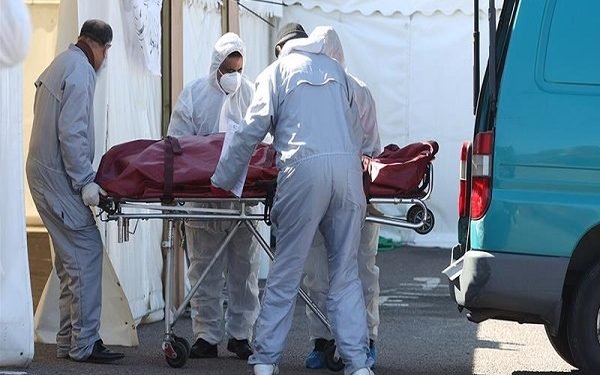Every year, the National Fire Protection Association puts out a report about injuries to firemen in the United States. In 2019, that report showed that 60,825 firefighter injuries occurred in the line of duty, an increase of four percent over the 2018 injury total. A good percentage of these injuries occur at fire grounds simply because no matter how much training firemen receive and how much protective gear they get, they have a job that often involves risking their lives for the lives of others.
In very similar fashion, health workers are faced with the challenge of a high-risk profession, often heightened by disease outbreaks, like the coronavirus pandemic, which has waged war for over a year now. Within the time that it took for a vaccine to be developed, tested and administered for the first time, the novel coronavirus led to about two million deaths worldwide, a good number of them being deaths of health workers overwhelmed by the number of cases and exposed to the virus in the line of duty.
Ivuoma Tom is one of the lucky health workers whose story appears on the UNICEF COVID-19 Survivor Stories series. In her words, she, with other colleagues, were exposed to the virus when they came into contact with a patient they had no idea had been exposed. While she didn’t have trouble associated with the virus for the next 15 days after contact, she battled with breathing challenges and restlessness, and was placed on oxygen for five days after the signs of the virus manifested fully on the 16th day.
There are more stories like Ivuoma’s story, which despite their call for celebration are also scary, given the tale of long-term effects of the coronavirus, meaning that survival is not always a win with this virus.
While it has been at the forefront of ensuring that health workers and the general public are well protected against the coronavirus, the possibility of keeping health workers from ever contracting COVID-19 is one of the reasons MTN Group is donating $25million to the African Union to help with the procurement of COVID vaccine doses. The company recently announced this plan in a statement released towards the end of January, where it said that it was looking to help restore social and economic norms for the African continent and communities.
Part of MTN’s belief is that it can curb the huge negative impact of the virus on the continent and prevent a repeat of the hardship it has placed on a large percentage of Africa’s over 1.3billion people.
By vaccinating 7 million health workers across the continent, MTN is further ensuring that Africa has enough manpower to wage a strong fight against the virus, as health workers have proven to be Africa’s best defense against disease outbreaks – detecting cases early enough and providing optimal care to victims. This was the case during the Ebola outbreak and has been the case with the coronavirus.
In the early days of the coronavirus spread, MTN Group played a critical role in sensitizing African citizens using its access to over 250million subscribers. The company helped to ensure that people in different African countries had the right information to keep them safe. In August 2020, it launched the #WearItForMe campaign, a campaign to encourage mask wearing as a safety precaution in the 21 different markets it operates. Before this, it had pledged over $16million in relief packages for its employees, customers, vulnerable groups and support for selected government initiatives.
One more reason MTN has donated to the Africa Union is the drive towards equitable distribution of the COVID vaccine. According to Dr. John Nkengasong, Director of the Africa Centres for Disease Control and Prevention (CDC Africa), the plan is for Africa to achieve at least 60 percent herd immunity, and reports estimate that this will cost between $10 billion to $15 billion – a price most African countries cannot pay.
In January, the Africa Union through its Chairperson, President Cyril Ramaphosa of South Africa, announced the procurement commitment for 270 million COVID-19 vaccine doses worth around $2billion. Unfortunately, this only covers about 20percent of Africa’s 1.3billion people.
As the CDC Africa Director puts it, MTN’s donation is a massive boost to financing of the vaccine doses Africa needs and the logistical challenges of vaccinating at scale. Already, there has been some worry regarding the allocation strategy for the very limited vaccine doses available to certain African countries, and further procurement of vaccines. Private-public partnerships like MTN’s $25million donation to the Africa Union are therefore important to see that Africa does not have to wait months to receive the vaccines as opined by most news publications. More importantly, it ensures that the vaccines do not get to only citizens of countries who can afford them and that Africa can maintain its plan of giving priority to vaccinating people at risk such as the elderly, key frontline workers, persons with comorbidities, and social workers.
The Nation

